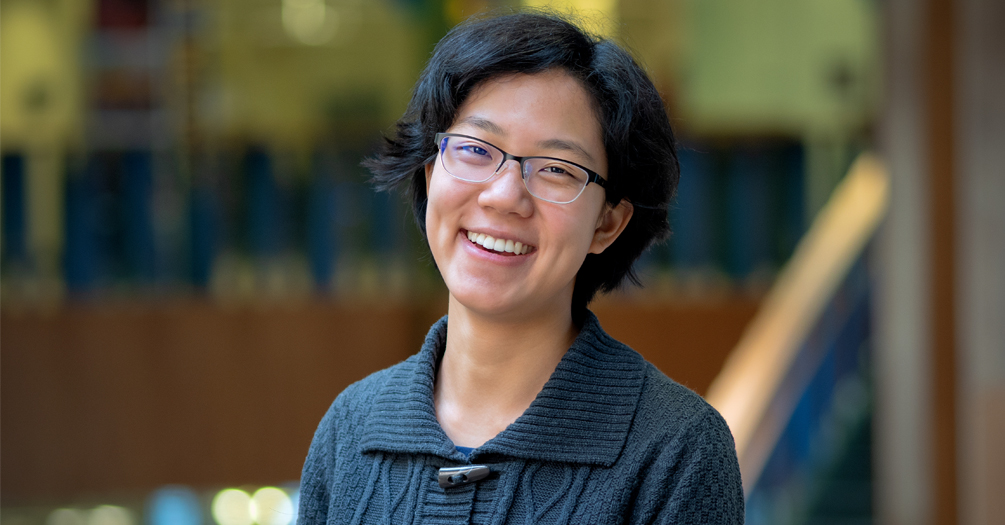Passionate Biostatistician Brings Empathy to the Science World

Katherine Li
Phd Student in Biostatistics
Katherine Li thought she wanted to be a medical doctor, but a high school program offered her the opportunity to take college courses and she discovered her aptitude and fondness for quantitative work.
She combined her health interests with that and it’s been a love affair with data sets ever since.
For Li, statistics are not just numbers on a screen. They are resources to better understand how to make the world a better place.
Doctor to Doctor
Raised in Mount Pleasant, Michigan, approximately two hours north of Ann Arbor, Li as a teenager was pretty sure an MD was in her future.
Then Central Michigan University classes spun her in a different direction. “I just figured since I had my high school class schedule, I should use the CMU program to explore these different college courses before I jumped into real college life at Michigan, which was my number one school choice,” says Li.
Infectious disease modeling like COVID and vaccination rates was a huge area of research for my department this past year.
She went on to earn bachelor’s degrees in statistics and economics and a master’s degree in biostatistics. Currently, Li is a PhD student in biostatistics where her interests include missing data analysis, survey sampling, and program evaluation.
COVID and Mister P
It’s not every day that you hear about the field of biostatistics, so Li is often asked to define it—and she’s nailed it down to an elevator pitch. “It's a field of applied statistics, but we apply them toward public health problems. So it could be clinical trials where we help a doctor design or analyze a randomized control trial or help them get the answers to what they’re asking,” explains Li. “The most common question in a clinical trial is about whether or not a treatment is effective. Infectious disease modeling like COVID and vaccination rates was a huge area of research for my department this past year.”
Li is more specifically interested in exploring missing data and using tools such as multilevel regression and post-stratification (affectionately known as Mister P). “It’s really fascinating,” says Li. “COVID definitely fits into my field of study because you can apply the methodology anywhere. At the beginning of the pandemic, I was interested in not necessarily just the missingness per se, but in the more general survey sampling field. At the height of COVID, I was struggling to keep my head above water in general and feeling overwhelmed. I guess I couldn’t really think too much about some of these more fun questions of how to apply my research.”
To ease quarantine blues, Li has taken up horticulture, dabbles in meditation, and was an early convert to the sourdough bread baking life.
Living with Purpose
“I really want to serve my community. I really want my career to have purpose. I want to show up to work every day knowing that this is making somebody's life easier, or happier, or improving the quality of life,” says Li.
As the child of Chinese immigrants and as someone whose grandmother utilizes both western medicine and traditional Chinese medicine to treat her cancer, Li understands the importance of having deep cultural knowledge and diversity in science.
“I want to make sure that underrepresented members of the population are included in policy decisions and health advice, so that they can actually be addressed using insights from their roots,” says Li. “The core that is the mission of statistics is to make sure we’re as close to the truth as possible.”
- Interested in public health? Learn more today.
- Read more stories about Michigan Public Health students.
- Support research and engaged learning at Michigan Public Health.
